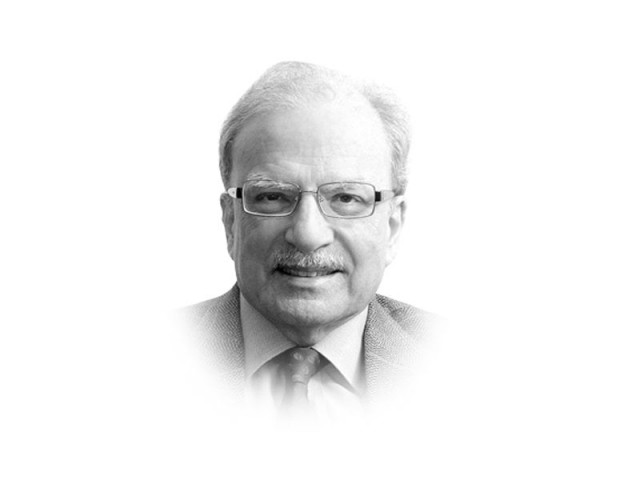America and Muslim world politics
Given Pakistan’s geographical position, it could influence social, economic and political progress of Muslim societies

The writer is a former caretaker finance minister and served as vice-president at the World Bank
This was a highly naive belief against which a number of American scholars had argued at length. To take just two examples: the works of Fareed Zakaria and Francis Fukuyama. In his book, The Future of Freedom, the former wrote as follows: “For people in the West, democracy means ‘liberal democracy’: a political system marked not only by free and fair elections but also by the rule of law, separation of powers, and protection of basic liberties of speech, assembly, religion, and property. But the bundle of freedoms — what might be termed ‘constitutional liberalism’ — has nothing intrinsically to do with democracy and the two have not always gone together, even in the West.” Fukuyama produced a two-volume work to indicate how democratic institutions have developed and how they can fail if not properly tended. The Bush belief that regime change by the use of force would make the Muslim world suddenly democratic was not supported by experience and academic thought. In fact, his Afghanistan and Iraq interventions created more chaos than political order.
It was also a fault to treat the Muslim world as a homogenous stretch of land defined by the prevalence of one religion. The American intervention in Iraq was to demonstrate that sectarian differences once released from the discipline imposed by an authoritarian regime produced political and social chaos that led to the rise of the Islamic State.
Also the influence of tribalism on the political cultures of many parts of the Muslim world went under-appreciated by the “interventionists” in the West — in the US and Britain in particular. These two countries were to partner in the adventures in Afghanistan and Iraq. It was surprising that the then British prime minister Tony Blair became a strong advocate of the Bush approach towards the Muslim world. As Christina Lamb suggests in her long study of her country’s involvement in Afghanistan, the US should draw some lessons from Britain’s failed attempts to bring Afghanistan under its control. Blair’s enthusiastic participation in Bush’s war ignored these lessons. “When Britons look back on the first and second Anglo-Afghan wars of the 19th century, they see mostly graveyards. In 1963, the British Prime Minister Harold Macmillan declared, ‘Rule No. 1 in politics: Never invade Afghanistan,’” writes Lamb.
While staying out of the Muslim world’s politics will most probably survive as the policy preference for the US in the post-Obama period, Washington will need to keep a close watch on what happens in societies that populate these regions. Given Pakistan’s geographical position, it could influence the political, social, economic and political progress of Muslim societies.
In this context, we need to identify the circumstances that drew Pakistan close to the conservative societies of the Arabian Peninsula and then analyse how the religious movement identified by some as ‘radical Islam’ is likely to shape the evolution of the global system. Pakistan was drawn to the Arab monarchies — in particular to Saudi Arabia — for reasons that included the ‘Muslimisation’ of the country as a result of the 1947 exchange of population; the migration of millions of young men to the Arabian Peninsula after the oil boom of the mid-1970s and how and why they succumbed to the charm of a radical interpretation of religion; the strong predisposition towards orthodox Islam on the part of President Ziaul Haq; and the need for external finance to keep the economy from collapsing.
It is on this strong link between Pakistan and Saudi Arabia that I rest my case for a strong association between Pakistan and the US. Pakistan’s robust political development could serve as a model for Saudi Arabia and other politically backward Arab states. Pakistan is now the second largest Muslim country in the world. In the next few decades, it will become the largest Muslim nation and how it develops politically, socially and economically could profoundly influence the world. What is now needed is to help it become a test case and a model for the democratisation of Muslim politics.
Published in The Express Tribune, June 6th, 2016.
Like Opinion & Editorial on Facebook, follow @ETOpEd on Twitter to receive all updates on all our daily pieces.














COMMENTS
Comments are moderated and generally will be posted if they are on-topic and not abusive.
For more information, please see our Comments FAQ